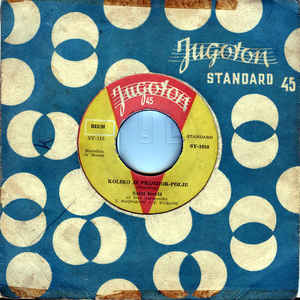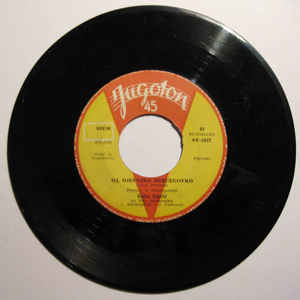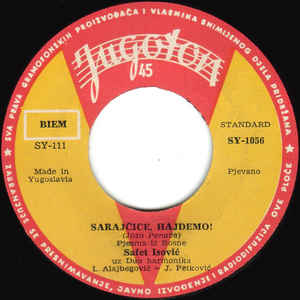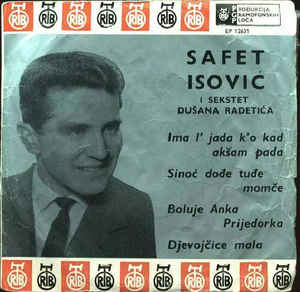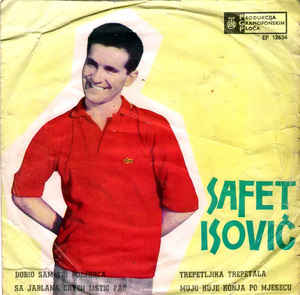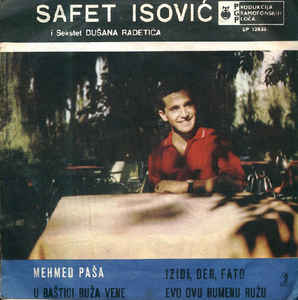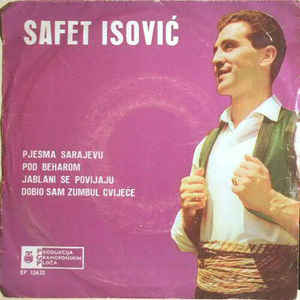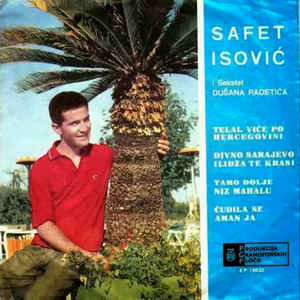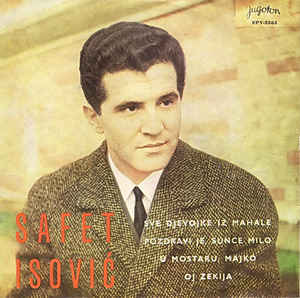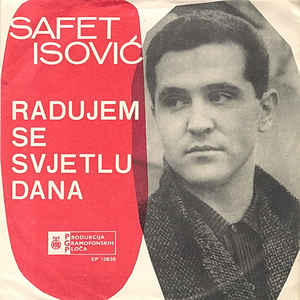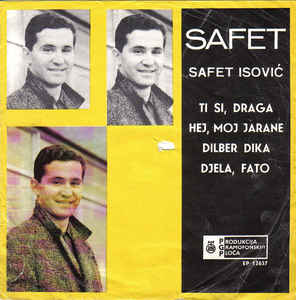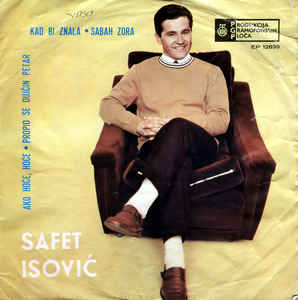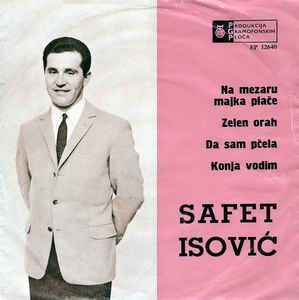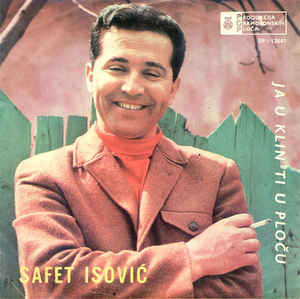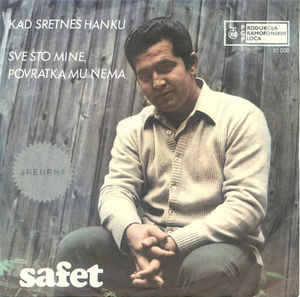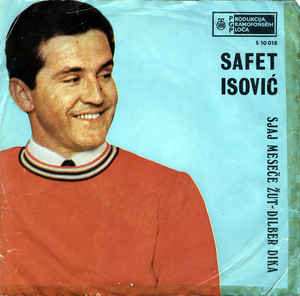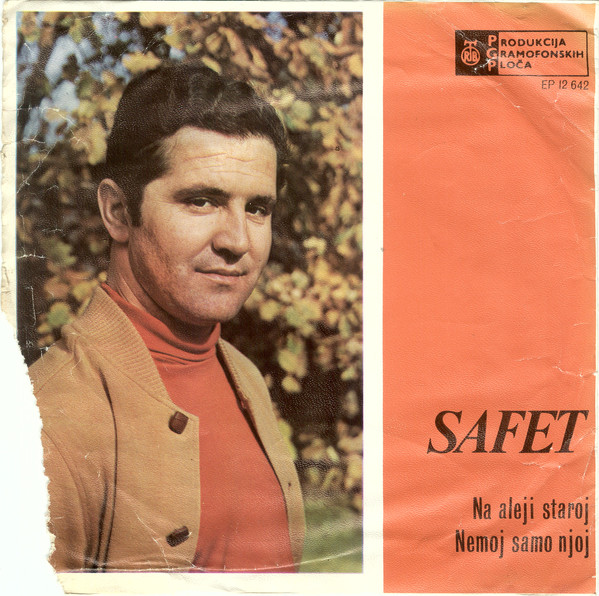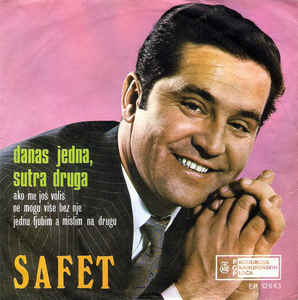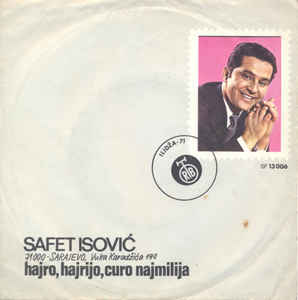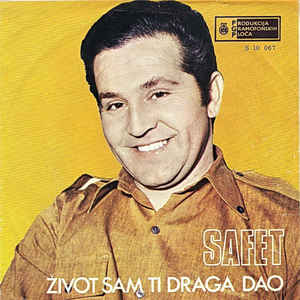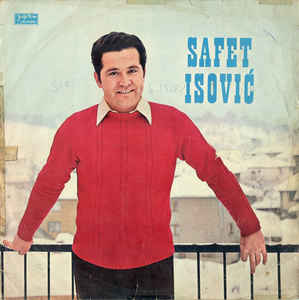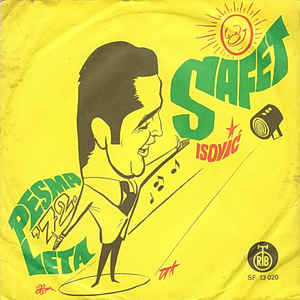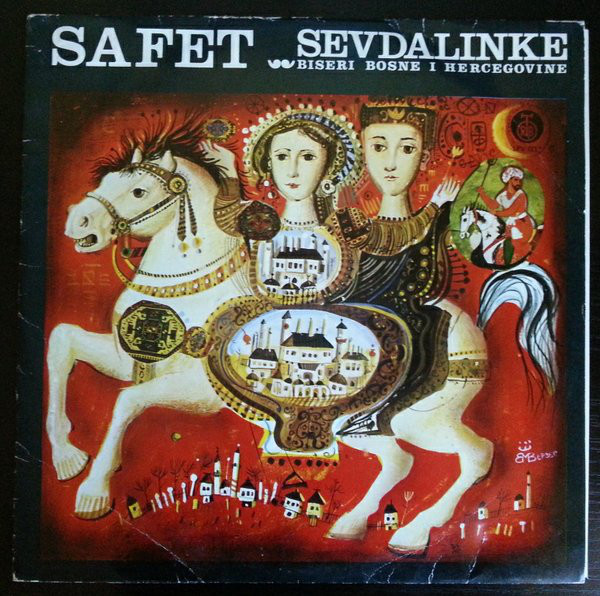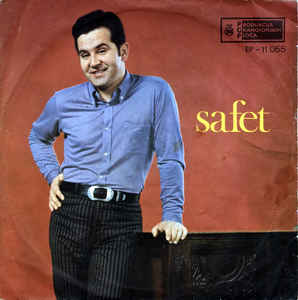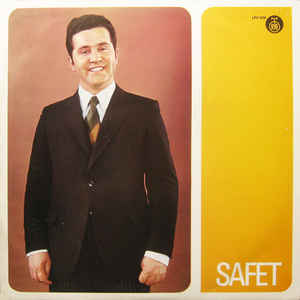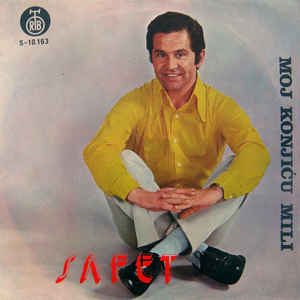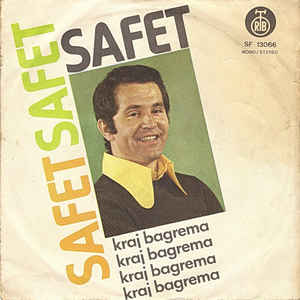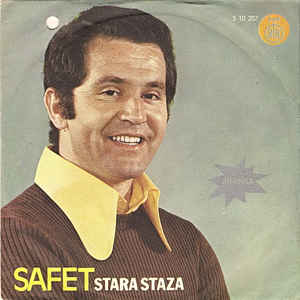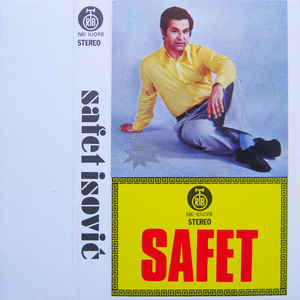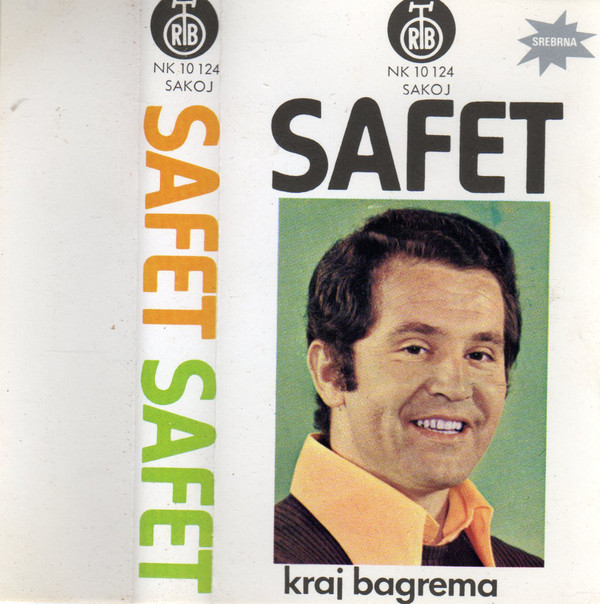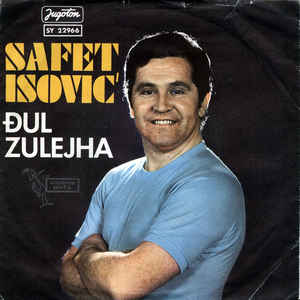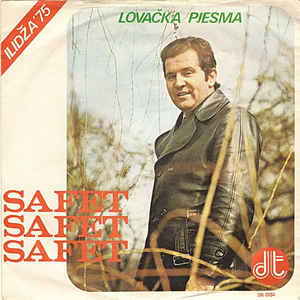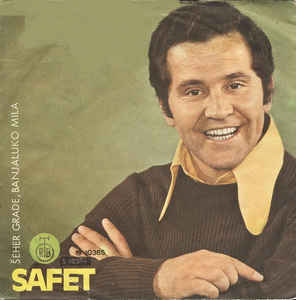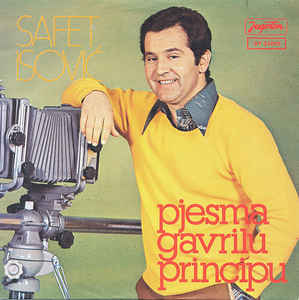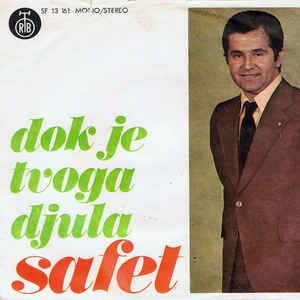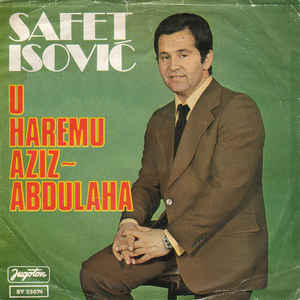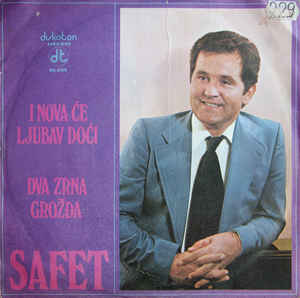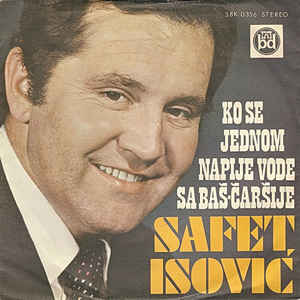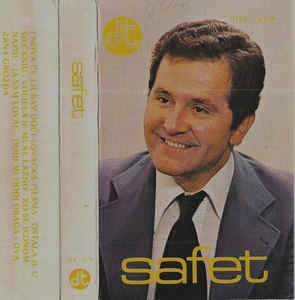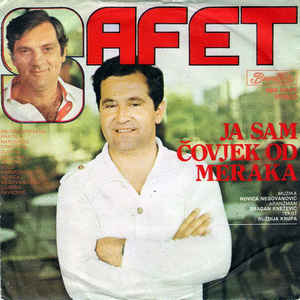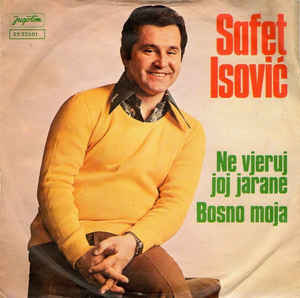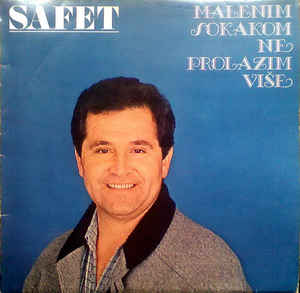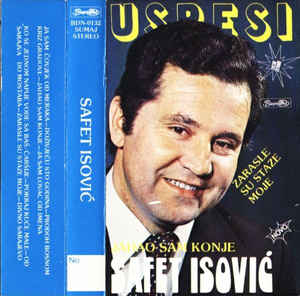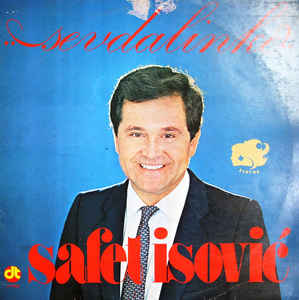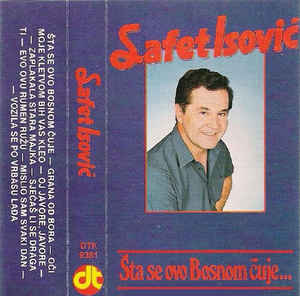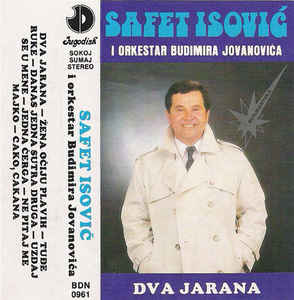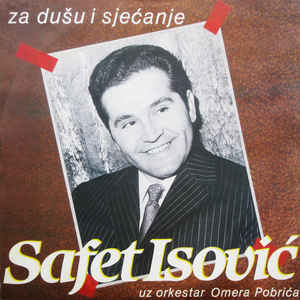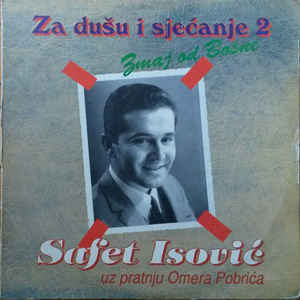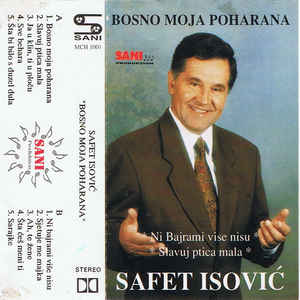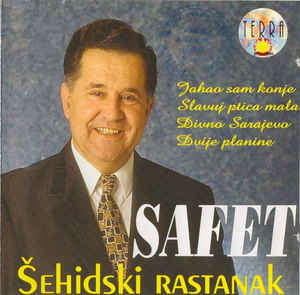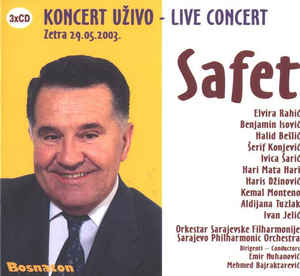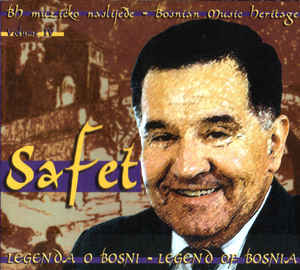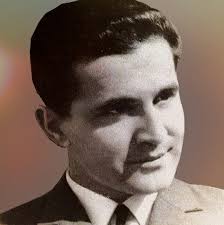
Safet Isović, born on 20 October 1936 in Bileća, was a well-known Bosnian-Herzegovinian Sevdalinka interpreter. According to most music critics and connoisseurs of the original folk melodies was one of the best Sevdalinka singers of all time. During the Second World War, he left his home Bileća with his parents as a refugee. Since then he has lived in Banja Luka, where he attended the primary school “Šesta pučka škola”.
After the end of the war, he returned to Bileća, enrolled at the local grammar school, then attended the higher grammar school in Trebinje. After the sixth grade, he moved to Slavonski Brod, continued his education at the grammar school “Zlatko Šnajder”. There he was one of the best pupils and graduated with the Matura in 1955.
In the same year, he went to Sarajevo and began studying law there. He spent the rest of his life in Sarajevo. He often sang old Sevdalinka songs in the company of his friends, but they were never recorded. One of them was “Na Ophodži prema Bakijama”, but he also liked to sing the Vranje-Sevdah.
During his studies in Sarajevo he often sang together with his friends in the corridors of the university. Hasko Haverić liked his singing , who had managed to get him to become a member of the ensemble for folk dances and singing of the student association “Slobodan Princip Seljo”. There he sang before a commission that included Selver Pašić, Selim Salihbegović and others. Because of his talent, he was accepted immediately.
In 1956 he was persuaded by the members of the ensemble to audition for Radio Sarajevo. After the second attempt, he was allowed to record two songs. The first recorded songs were “Kad ja pođem iz Sarajeva grada” and “Kasno prođoh kraj Morića hana” and were the first broadcast on Radio Sarajevo on the day of Sarajevo’s liberation in 1957.
His first solo concert took place on 19 March 1963 in the ““House of the trade union”” in Belgrade and was opened with the song “Otvori vrata od hamama, Zlato, Zlatijo”. Two very successful years followed. He was often the winner of major music festivals, the “Golden Microphone” prize and about 35 gold and silver records, the Bosnia-Herzegovina Music Award and the former Yugoslavia Music Award. Isović’s songs accompanied the development of the socialist state.
At the beginning of the 1970s, he filled the halls of all socialist capitals, from Triglav to Gevgelija. His music represented a new spirituality, based on the connection between the original tradition and the socialist “modernized” popularity.
Safet Isović has “democratized” the Sevdalinka, making it the song of the broad masses, which met one of the main requirements of the so-called socialist culture. He sang at all important social events and also several times in the company of Tito. With his crystal clear tenor, he sang songs about unfulfilled longing for love with a kind of stage self-consciousness and superiority.
The halls in which he gave solo concerts worldwide were always overcrowded.
The highlight of all performances was the concert at the full Sydney Opera House, where he was included in the catalogue of performers and was the only singer from the former Yugoslavia to perform there. He recorded numerous Sevdalinka for the Sarajevo Radio Archive (including some Sevdalinka with Saz).
He was an active member of the Bosnia-Herzegovina Artists’ Association.
It is thanks to Safet that many Sevdalinka will be preserved for all time through his audio and video recordings, as well as the archive recordings of Radio Sarajevo.
Throughout his long musical career, he has worked with many musicians, performers and writers. He recorded several songs in duet with famous Bosnian singers: Zaim Imamović, Nada Mamula, Meho Puzić, Mile Petrović, Beba Selimović…etc..
During the war (1992-1995), he was seriously wounded in his house in Sarajevo in the summer of 1992, and as a result, he flees for the second time in his life. For some time he stayed in Zagreb, where he participated in the foundation of the Croatian-Bosnian Friendship Society. Together with his son Benjamin, a poet, he renewed the song about devastated Bosnia. To the notes of the old Balkan melody “Svilen konac” he writes a new text under the title “Šehidski rastanak”, which praises the defence of Bosnia and the Islamic-Bosniak world attacked by war and aggression. With such a renewed repertoire, Isović visits the European centres of the Bosnian diaspora created by the war.
After the war, he returns to Sarajevo, where he becomes a kind of national guru. At the great solo concert in Zetra on 29 May 2003, he brings together the entire Bosniak elite – from the most important Islamic theologians, celebrated painters and writers, to journalists and the nouveau riche. This was not only a demonstration of Safet’s songs but also of the new national romanticism.
He actively sang for more than half a century.
Despite his age, his crystal clear voice did not deny him.
He sang better and better, without losing his level and breath, not even in the days when an incurable disease was inflicting on his body.
He died on 02 September 2007, the funeral took place on 04 September 2007 at the cemetery of the Ali Pasha Mosque in Sarajevo.

